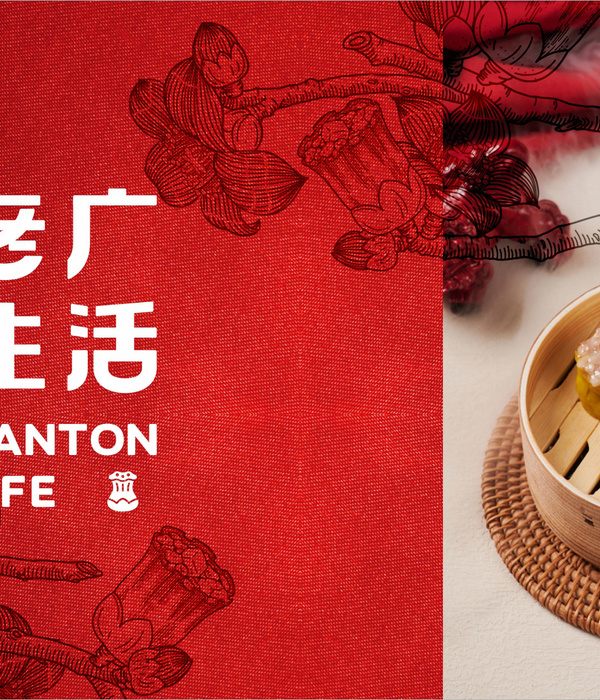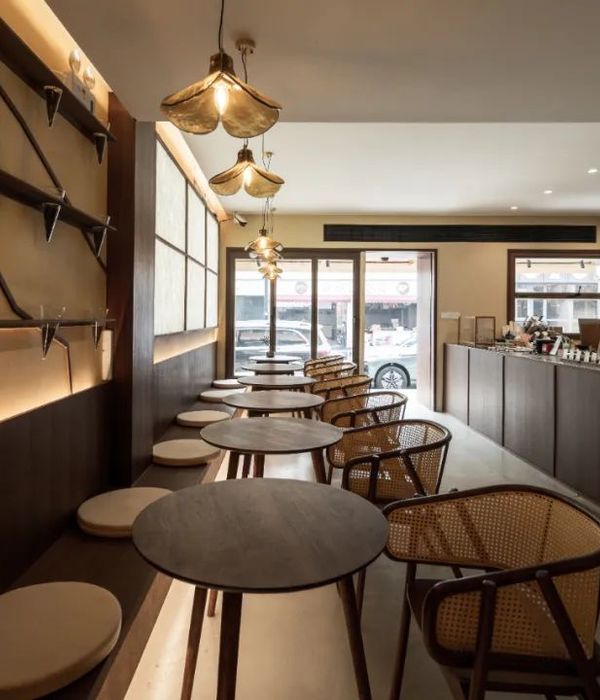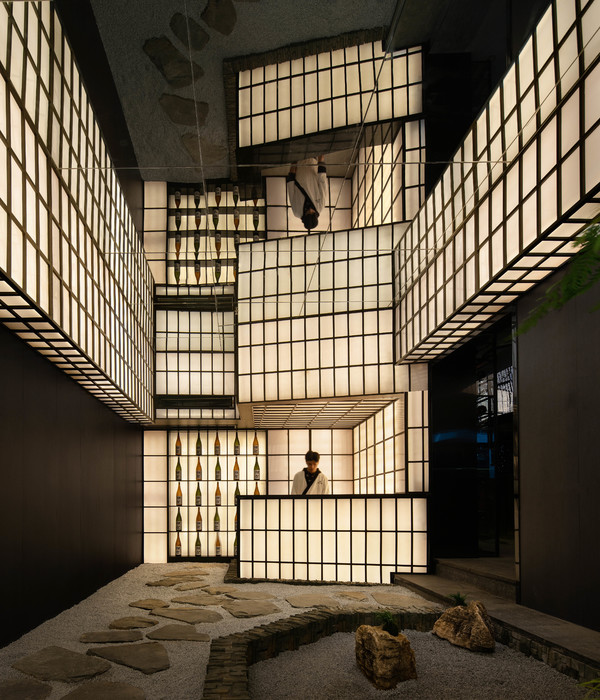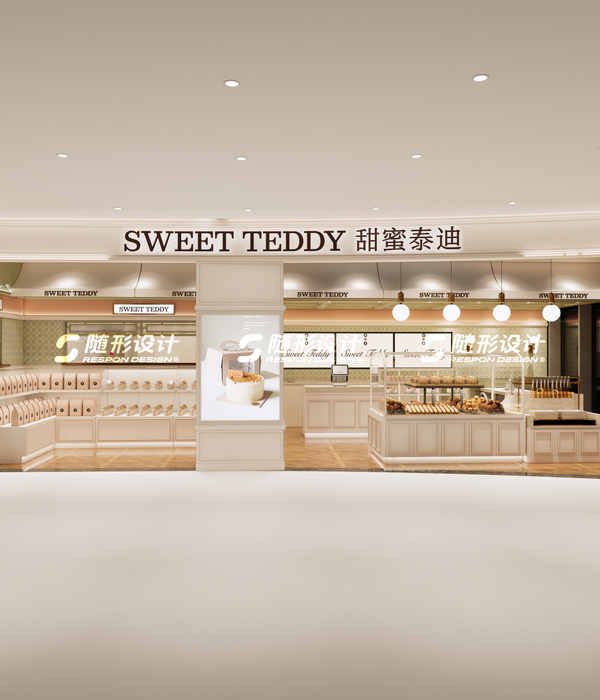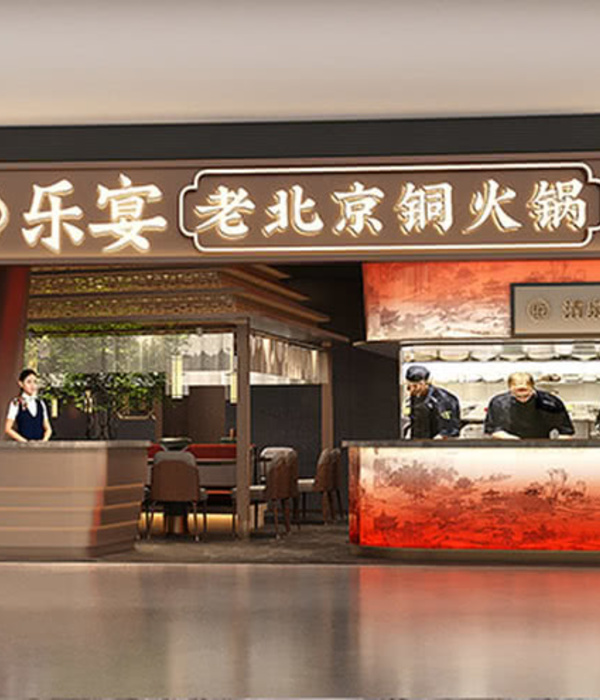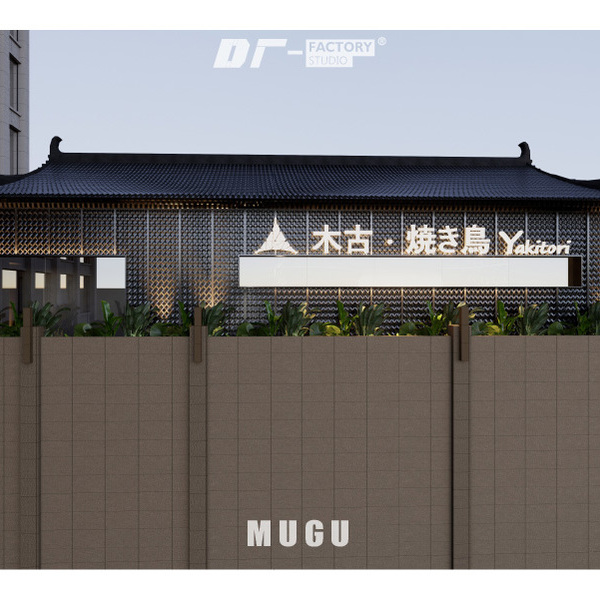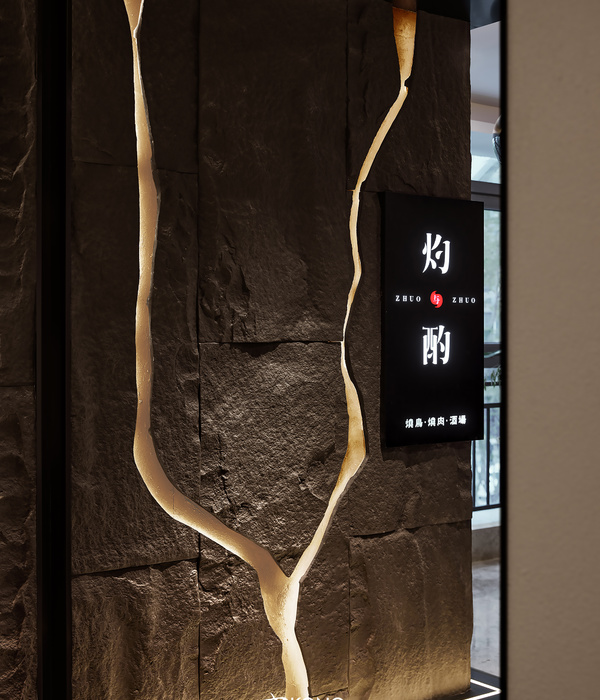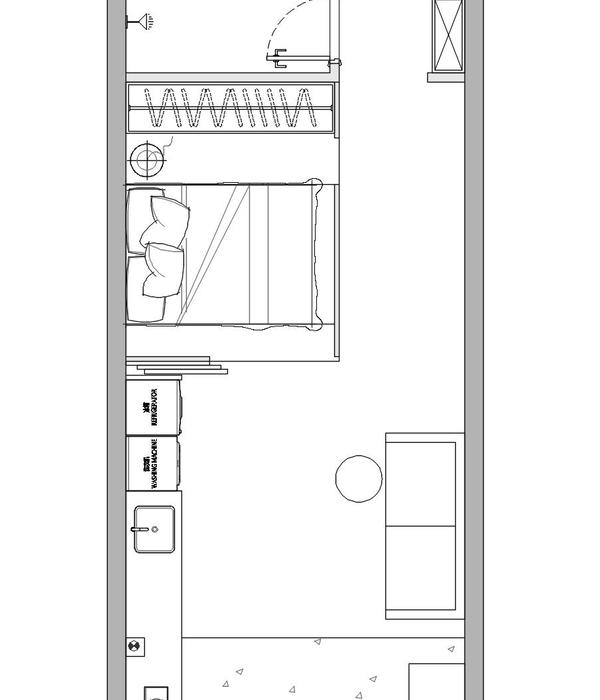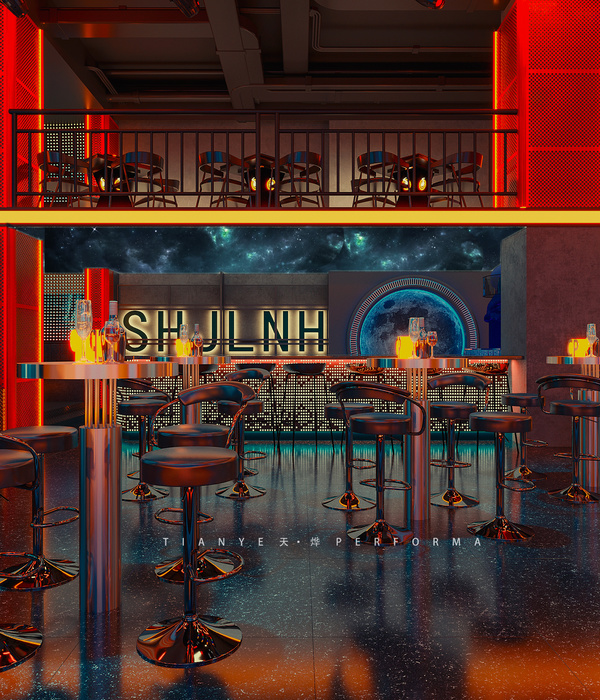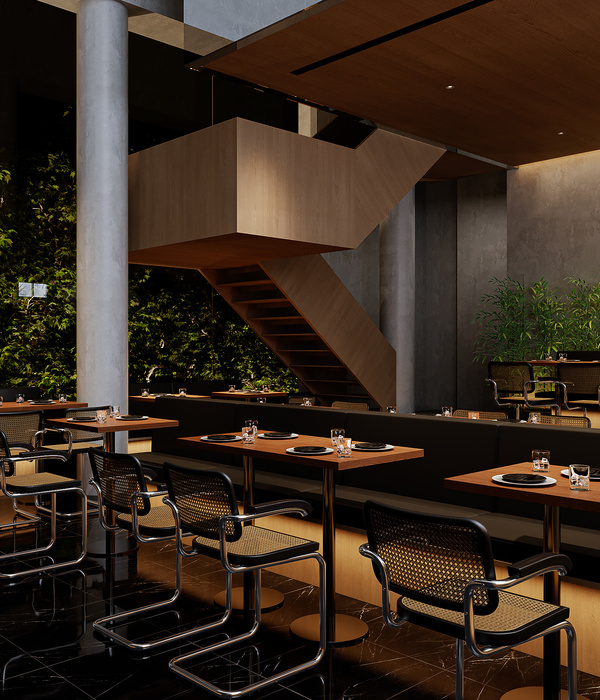这个凉亭邀请人们近距离体验自然,将游客的注意力吸引到水库上——景色、声音、运动。得益于能看到树梢的无边视界,平静水面的清晰框景,以及对日常生活喧嚣的温柔隔绝,它驱使着人们放慢脚步停下来。
The pavilion invites people to a close experience with nature, focusing visitors’ attention on the water reservoir – views, sounds, movements. It forces a person to stop, to slow down thanks to the endless view into the treetops, the defined view of the boundless calm water surface and the gentle closure from the surrounding bustle of everyday life.
▼装置远眺,distant view of the pavilion
凉亭的内部可以舒适地容纳6个人,在喝茶时面对面地围坐在桌子旁,赋予茶道一种亲密的感觉。微妙、轻柔且开放的结构借鉴传统的日本室内风格,但引入了现代元素。它和谐且优雅地融入周围的环境。
The interior of the pavilion comfortably accommodates 6 people, sitting face-to-face around the table during the tea ceremony, which gives the ceremony a certain impression of intimacy. The subtle/light, open construction refers to the traditional Japanese interior but brings modern elements into it. It fits harmoniously and delicately into the surrounding environment.
▼从湖面望向凉亭,overview of pavilion looking arcoss lake
▼装置正立面,front elevation of the pavilion
▼装置侧立面,side elevation of the pavilion
传统茶道的一些规则被引入最终的设计中。当进入内部时,每个游客必须弯下腰,从最低横梁下穿过,这个设计参考了日式茶室的躙り口(nijiri guchi),象征着茶道仪式中所有参与者的彼此平等。在进入的同时,一个被精心设计的视野将人们的注意力引向水库。场地中间有一张矮桌,游客需要跪坐,正如日本文化中的习俗一般。
Several rules of the traditional tea ceremony were transferred to the final design. When entering the interior, each visitor must bend down to pass under the lowest horizontal beam of the structure, which refers to the nijiri-guchi door, a symbol of the equality of all participants in the ceremony. At the same time, upon entering, a rectifying view opens up attention to the water reservoir. A low table in the middle of the layout invites visitors to sit on their knees as is customary in Japanese culture.
▼装置概览,overview of the pavilion
▼装置的下部用胶合板加固,提供了一种隐私感,stiffening of the lower part of the structure with plywood boards provides a feeling of privacy
装置的下部用胶合板加固,提供了一种隐私感,并隔离外部噪音。开放的入口框架让人可以看到内部,路过的行人也能目睹正在进行的茶道。桌子的高度使它既可以在茶道时使用,也可以作为长凳,供人们坐下,进行安静的冥想。因此遵循了日式观念,即专注于质朴和审美的复杂。桌子成为凉亭中唯一的家具位于中央,它的长纵深让茶道的参与者能够紧邻地坐在一起,带来亲密的感觉。
Stiffening of the lower part of the structure with plywood boards provides a feeling of privacy and detachment from exterior noises. The open entrance frame allows a view into the interior and passers-by can see the tea ceremony in progress. The height of the table gives it versatility when used both during the tea ceremony or as a bench offering a place for sitting and quiet contemplation, thus following the Japanese ideology focused on simplicity and aesthetic sophistication. The table becomes the only central furniture of the pavilion, its depth allows the participants of the ceremony to sit in close proximity with a feeling of mutuality.
▼精心设计的视野将人们的注意力引向水库,a rectifying view opens up attention to the water reservoir
▼凉亭局部,detail of the pavilion
装置具有多重功能,除了用于茶道,它还可以作为令人愉悦的夏日凉亭,享有舒缓的自然景观。方形的平面设计简约,主要元素的运用描了物质与人类的象征符号。
The pavilion has a multifunctional character and, in addition to the tea ceremony, it can also function as a pleasant summer pavilion with soothing views of nature. The square-shaped floor plan refers to simplicity, and the use of primary elements depicts the symbol of matter and man.
▼顶部开口享有良好的景观视野, openings on the top with endless view into the treetops
▼舒缓的自然景观,soothing views of nature
装置的结构占地面积为3 × 3米,高度为4米,这也是方形横断面的云杉棱柱的结构高度以及凉亭的最大允许高度。原始的木质元素与柔软的织物相辅相成,带来惬意的感觉,但保持凉亭仍然是极简的,因而使人不会从茶道中分心,始终维持平和心境。
The structure of the pavilion is based on a plan area of 3 x 3 m with a height of 4 m, which is also the structural height of wooden spruce prisms of square cross-section and the maximum permitted height of the pavilion. The raw wooden elements are complemented by a soft fabric that brings a feeling of coziness, but keeps the pavilion still minimalist, so that it does not distract from the ceremony itself, from achieving a sense of peace and harmony.
▼夜景概览,night view overall
▼夜景的茶室望向湖面,view from tea house to the lake at night
其他使用的材料是云杉板,桦木胶合板和屋顶用土工布。亭子的体量以传统茶室形状为基础。沿对角固定的织物布料与用桦木胶合板封闭的边墙,构建了一种隐私的氛围,并能像房屋一样免受日晒雨淋等天气条件的影响,但同时框架结构足够开放,保证通风,与外界连接,创造了非传统的景观。土工纺织布分为两层,为凉亭带来玩味,唤醒传统日式建筑。
Other materials used are spruce floor planks, birch plywood and roof geotextile. The mass of the pavilion is based on the shape of traditional tea pavilions. Diagonally fixed fabric together with closing two side walls with birch plywood create an impression of privacy and protection against weather conditions such as sun and rain, which the house provides, but at the same time the frame structure remains airy and open enough to allow a connection with the exterior and the creation of non-traditional views. Textiles in two levels bring a certain play to the pavilion, which is meant to evoke traditional Japanese architecture.
▼轴测图,axonometry
▼剖面图,section
▼地板与屋顶细节图,detail of the roof and floor
Studio: GRAU architects
Author: Andrej Olah, Filip Marčák, Jana Filípková, Alexandra Májska
hello@grau.sk
Website:
Social media:
Studio address: Blumentálska 1, 811 07 Bratislava, Slovakia
Co-author:[students, workshop participants]
Julia Kurnik, Alicja Łosik, Alexandra Gospodarek, Katarzyna Owczarska,
Maria Pawłova, Maciej Kuratczyk, Michał Teodorczyk, Jan Chmurski
Project location: Hrabinka Lake, Český Těšín
Project country: Czech Republic
Project year: 2022
Completion year: 2022
Gross Floor Area: 9 m²
Dimensions: 3 x 3 x 4 m
Cost: 15 000 €
Client: Mood for Wood
Client’s e-mail:
Client’s website:
Project website:
Photographer Matej Hakár,
,
MORE:
GRAU architects
更多关于他们:
{{item.text_origin}}

